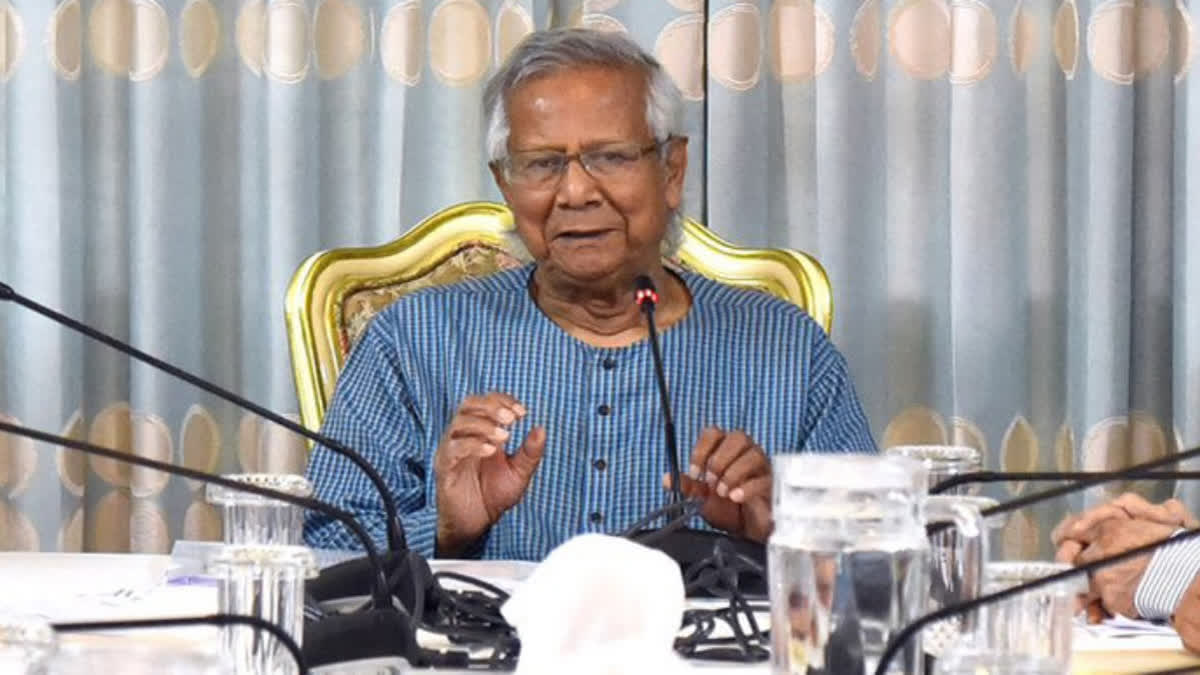New Delhi: Experts in foreign affairs are questioning the decision of the Nobel Peace Prize-winning Muhammad Yunus-led interim administration in Bangladesh in December 2024 to conduct general elections in the country late this year or early next year.
According to media reports, opposition parties including the Bangladesh Nationalist Party (BNP) have called for elections to be held as soon as possible. Bangladesh’s army chief General Waker-uz-Zaman, whose refusal to support Hasina during the deadly student protests led to her departure, said in September that democracy should be restored within 12 to 18 months. Experts on the issue have raised concerns about what they say is 'the right of the Yonus administration' to proceed with the reforms before conducting elections.
ETV Bharat spoke to former diplomats and academics to know more about the implications of the current political situation in Bangladesh on India.
Former High Commissioner of India to Bangladesh, Veena Sikri said, “One issue is whether the Yunus administration is right to pursue reforms before the election, given that it is an interim government. According to the constitution they pledged to uphold on August 8, there is no mention of an interim government. This raises questions about the legitimacy and constitutionality of their situation.”
The former diplomat noted that historically, when there was a caretaker government provision in Bangladesh's constitution, it was only for a short time, specifically to maintain law and order for 90 days before elections.
“The interim government has set up various reform commissions, but these matters should be addressed by a parliament that has been elected by the people. This is why many believe that these tasks do not fall under the responsibilities of an interim government”, Sikri explained.
She noted that India has always wished for Bangladesh to be stable, prosperous, and democratic. Therefore, we have consistently supported democracy in Bangladesh. If elections take place, it is a positive development, as it is a key sign of democracy. Free, fair, and inclusive elections are crucial steps forward.
Sikri stressed that India would support early elections. Regardless of who wins, India will work with that government. A democratically elected government is always manageable. “Elections happen worldwide, and we engage with the resulting government. This has been India's approach, and we look forward to seeing free, fair, and inclusive elections in Bangladesh. We are prepared to work with whoever is elected”, she stated.
Furthermore, Dr. Jagannath Panda, Head of the Stockholm Center for South Asian and Indo-Pacific Affairs at the Institute for Security and Development Policy, Sweden said, “Political instability will appear to be a new norm in Bangladesh politics in the post-Hasina period. Bangladesh might need reform and economic recovery for a steady and sustainable future.”
“Bangladesh might decide to maintain a distance from India. However, Bangladesh’s future is undeniably linked to a closer relationship with India as a neighbour in the Bay of Bengal region. Trade interdependence, cross-border cultural linkages, and maritime dynamics in the Bay of Bengal are critical factors that will encourage Bangladesh to stay reliant on India no matter how much the Chinese would like to sway Bangladesh's politics in favor of them by creating a strategic rift between India and Bangladesh”, he said.



